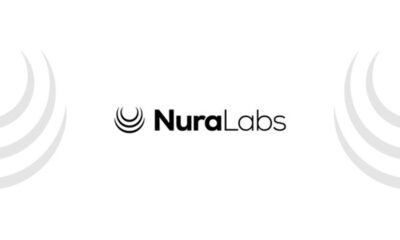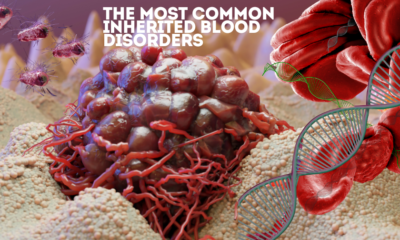Health & Fitness
A Brighter Future with Radiation Oncology

Radiation oncology is an incredible medical field that is constantly advancing and making great strides in the fight against cancer. In this blog post, we will explore the basics of radiation oncology and discuss some of the benefits of this treatment. We will also provide an overview of some of the latest advancements in radiation oncology and how they are helping to create a brighter future for cancer patients.
If You’re Interested In Related Info: Michael Dattoli
Radiation Oncology 101
Radiation oncology is a field of medicine that deals with the treatment of cancer with radiation. Radiation therapy is a type of treatment that uses radiation to damage or destroy cancerous cells. This therapy can be used to treat a wide variety of cancers, including leukemia, lymphoma, and brain cancer. Radiation oncology is one of the most commonly used types of cancer treatment and it has been shown to be effective in treating tumors and other diseases.
There are several types of radiation therapy that are available for use in radiation oncology patients. These treatments include external beam radiotherapy (EBRT), brachytherapy (in which radioactive materials are placed directly into the tumor), and stereotactic radiosurgery (SRS). External beam radiotherapy uses large doses of radiation delivered through beams from outside the body. Brachytherapy uses smaller doses of radiation delivered through needles or other devices placed directly into the tumor. Stereotactic radiosurgery uses surgery to place radioactive sources directly into tumors without causing damage to surrounding tissue.
Radiation therapy has many benefits when it comes to treating cancer patients. It can effectively treat tumors and other diseases, help improve life expectancy and quality of life, have an impact on the healthcare industry, and pose few ethical concerns. There are also several changes that are expected within the field of radiation oncology in the near future, including advances in technology that will make treatments more effective and efficient. If you’re interested in pursuing a career as a radiation oncologist, there are many resources available online that can help you learn more about this exciting profession.
Getting to Know How Radiation Treatments Save Lives
Radiation oncology is a specialty that deals with the treatment of cancer with radiation. This type of treatment is often times the best hope for patients who have exhausted all other treatments. Radiation therapy can be used to treat a variety of cancers, including head and neck cancer, ovarian cancer, and lung cancer.
The technology and process behind radiation therapy is complex, but it provides hope for patients who may have little else left to choose from. The goal of radiation therapy is to damage or kill the cells that are causing the cancerous growths. There are many different types of radiation therapy available today, each with its own benefits and limitations.
Understanding these treatments and their implications for the future is essential if we want to continue to provide hope to cancer patients everywhere. We must disseminate information about radiation oncology so that more people can benefit from its powerful effects. Specialized teams of doctors are necessary in order to provide the best possible care for those suffering from cancer – don’t let this crucial field go unnoticed!
Benefits of Radiation Oncology Treatments
Radiation therapy is a non-invasive treatment that uses high-energy radiation to target and kill cancerous cells. This type of treatment is often localized, meaning that it only affects the cancerous cells near the site of the tumor. Radiation therapy has many benefits over more traditional forms of cancer treatment, including shorter recovery times and fewer side effects.
In some cases, radiation therapy can be used as a stand-alone treatment to improve response rates for certain cancers. For example, if chemotherapy or surgery isn’t working well enough to kill all the cancerous cells, radiation therapy can be used as a supplemental approach to improve results. Radiation therapy also has the added benefit of being less expensive than chemotherapy or surgery in many cases. This makes it an attractive option for patients who are on a budget or who want more localized treatments instead of general anesthesia and long hospital stays.
Overall, radiation therapy is an excellent choice for individuals who have stage III or IV cancers that have not responded well to other forms of treatment. It has improved outcomes in many types of cancers compared to traditional methods and can be used in conjunction with other treatments like surgery and chemotherapy to achieve even better results.
See Also: Michael Dattoli
The Power of Radiotherapy and its Safety and Accuracy
Cancer is a devastating disease that affects millions of people around the world. Radiotherapy is one of the most effective treatments available for cancer, and it has revolutionized the way cancer treatment is delivered in recent years. In this blog, we will be discussing how radiotherapy works, its precision and accuracy, and its role in improving long term outcomes for cancer patients.
Radiotherapy uses radiation to treat cancer. This therapy involves exposing the tumor to high levels of radiation over a period of time, which can often result in complete or partial tumor removal. Although radiotherapy is often considered to be a “last resort” treatment option for cancer patients, it has been proven to be an incredibly effective and safe way to treat many different types of tumors.
Radiation therapy treatments are often very precise and accurate – even when treating tumors that are quite large. In addition, radiotherapy treatments are also very safe when delivered correctly by qualified professionals. As technology continues to evolve, so too does the use of radiation therapy in the treatment of cancers. This means that we could soon see more advanced radiotherapy protocols being developed that are even more effective than current therapies.
Overall, radiotherapy is an invaluable tool in the fight against cancer – it has resulted in improved quality of life for thousands of patients around the world over the past few decades. It’s important for us as healthcare professionals to understand all that radiotherapy can do for our patients so that we can provide them with the best possible care possible.
All in All
Radiation oncology is an incredible medical field that is constantly advancing and providing hope to cancer patients. Radiation therapy has been proven to be an effective way to treat cancer, with fewer side effects and shorter recovery times than traditional treatments. Furthermore, advances in technology are allowing for more precise and accurate treatments, resulting in better outcomes for patients. All of these factors make radiation oncology a field worth investing in if you want to make a difference in the fight against cancer. If you are interested in helping to improve the lives of those affected by this devastating disease, consider pursuing a career as a radiation oncologist today!
-

 Press Release7 days ago
Press Release7 days agoIn2space Launches Campaign to Make Space Travel Accessible for All
-

 Press Release2 days ago
Press Release2 days agoNura Labs Files Revolutionary Patent: AI-Powered Wallet Solves the $180 Billion Crypto Staking Complexity Crisis
-

 Press Release12 hours ago
Press Release12 hours agoGlobal Compound Feeds and Additives Industry Report: Market Expansion and Competitive Insights to 2035
-

 Technology11 hours ago
Technology11 hours agoWhat to Know Before Switching Cell Phone Network Services in 2025

































